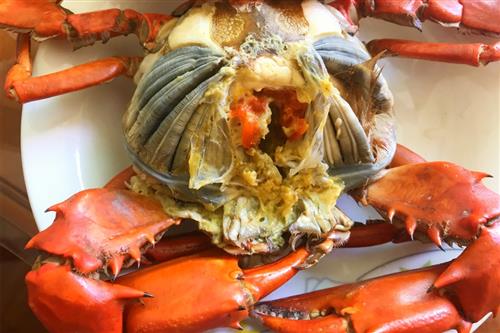Can you eat crabs during breastfeeding?
In the fall, it is a good time to eat crabs, yellow crab paste, many of my friends may have been salivating. In October, there was a full year of incarceration. After the hard-won upgrade, many new mothers would like to let go of their belly and savor their food. Crab can eat it? And slow and slow! Experts say, the new mothers are still in a special period, it is too early to lift the ban on breastfeeding. Breastfeeding crabs, experts recommend eating less or even not eat New mothers do not know that breastfeeding mothers still have a lot of dietary taboos, and crabs also belong to one of the restricted areas! They are also providing breast milk to their babies. If new mothers have problems with their postpartum diet, they will certainly lose much of their milk. It may even threaten your baby's health. New mothers should remember that they cannot eat foods that are cold, spicy, greasy, seafood, and allergic to themselves. Crabs are cold and are cold, seafood, and other foods. Generally, breast-feeding women do not eat crabs. Even some new mothers are prone to crab allergies and are even less likely to eat. Eating crabs may not have a big impact on new mothers, but the risk for babies is not small. According to the survey, infants younger than 3 years old are susceptible to allergies. The highest age is within 1 year and the highest age range is 4 to 6 months. In infants and young children who have supplemental food within 4 months, the risk of allergic reactions is higher than that of supplemental food supplements. The main source of nutrition for non-weaned babies is breast milk. If breast-feeding mothers eat foods that are prone to allergic reactions, such as crabs, it will also increase the likelihood of baby allergies. Breast-feeding mothers' food allergies may cause skin symptoms such as infantile eczema and pruritus, and may also cause baby's own immune system disorders. If the new mother and the baby themselves are not allergic, you can taste it in moderation, but you have to take a degree. It's best if you only have three or less weeks. Clinically, infants and young children are found to have foods that cause allergies, such as milk, eggs, soybeans, peanuts, etc. As for crabs, they are cold, seafood, so breast-feeding mothers have to control the crabs, but also pay attention to these are prone to cause allergies. food. The production and quality of enzyme preparations produced by plants are unstable due to the influence of growth area, season, climate, etc. The enzymes produced by animals are mainly extracted from the glands of slaughtered livestock, and the source is limited; only enzymes produced by microorganisms can meet the needs of any scale, with high yield and stable quality. Microbial enzyme preparations can not only replace the main types of animal and plant enzyme preparations with the same performance, but also produce high-temperature-amylases that act as catalysts at 100°C and detergent proteases that act at pH 10-12. In the 1940s, the microbial enzyme preparation industry developed rapidly. At present, the production of enzyme preparations is mainly based on deep fermentation, supplemented by semi-solid fermentation, and the ability of the strains to produce enzymes has also been greatly improved. The immobilized enzyme and immobilized cell technology developed in the 1960s and 1970s enabled the enzyme to be used repeatedly and continuously reacted, and its scope of application was also expanded. At present, in addition to the food and textile industries, microbial enzyme preparations are also used in daily chemistry, chemicals, pharmaceuticals, feed, papermaking, building materials, biochemistry, clinical analysis and other aspects, becoming an important sector of the fermentation industry. enzyme preparation,food additives,Papain,lactase,lipase,lysozyme,bromelain,protease,laccase PYSON Co. ,Ltd. , https://www.pysonbio.com
